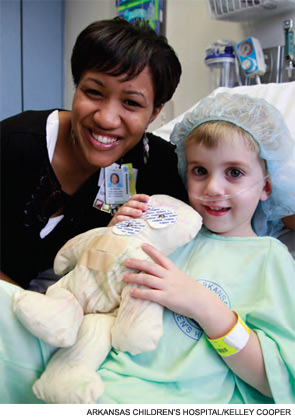The Association of American Medical Colleges is preparing a new slate of recommendations for improving the way med schools screen students in an effort to get at what kind of people the applicants are—and whether they have the qualities that will make them good, caring doctors.
Few Medical Errors are Reported
Checklist Improves Communication During Patient Transfers
A standardized checklist and transfer protocol can reduce errors during patient handoffs following surgical or interventional procedures.
Reducing Patient Wait Times: Examine your operations to boost efficiency
Here’s a telling statistic: The average time patients wait in an office to see an otolaryngologist is 24 minutes, according to Press Ganey Associates, Inc., a South Bend, Ind., health care performance measurement and improvement firm. If that doesn’t sound bad, or if you think your practice exceeds that benchmark, consider that otolaryngology ranked 19th in overall satisfaction among 25 medical specialties measured in Press Ganey’s 2010 Medical Practice Pulse Report.

Happy Patients, Happy Doctors: Patient satisfaction surveys will become an important part of your practice
When Kevin Watson joined Colorado Otolaryngology Associates, PC, as administrator nearly two years ago, the Colorado Springs practice wasn’t asking patients about their care experience in a systematic fashion. “They had done some patient surveys, but it was all hard copy and they hadn’t received a great response,” he said.

A Coping Mechanism: Child life specialists can ease hospital stays for pediatric patients
Seven-year-old Michael is scheduled to have a hemangioma removed from his face at the Arkansas Children’s Hospital (ACH) Ambulatory Surgery Center in Little Rock. The morning of surgery, he and his mother meet with child life specialists Cassandra C. James, MS, CCLS, and Camille Dante, MS, CCLS, who show him pictures of the operating room. They let him play with an anesthesia mask and a pulse oximeter, and talk about what to expect when he goes to sleep.

Your Practice, Your Brand: Top 3 marketing strategies
It’s a common challenge: In a tough economy, do you spend to increase patient revenue or save to keep your practice afloat?
A Patient Experiment
Berrylin J. Ferguson, MD, FACS, FAAOA, associate professor of otolaryngology and director of the Division of Sino-Nasal Disorders and Allergy at the University of Pittsburgh School of Medicine in Pittsburgh, Pa., uses the following form to help determine which allergy treatments will work best for each patient.
Treating Allergic Rhinitis: A Patient Experiment
Berrylin J. Ferguson, MD, FACS, FAAOA, associate professor of otolaryngology and director of the Division of Sino-Nasal Disorders and Allergy at the University of Pittsburgh School of Medicine in Pittsburgh, Pa., uses the following form to help determine which allergy treatments will work best for each patient.

Show Me the Evidence: Comparative effectiveness research could aid treatment decisions
A push at the national level to fund more comparative effectiveness research could mean more information for otolaryngologists about which treatments work best for a given condition and in which patients.
